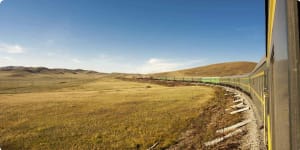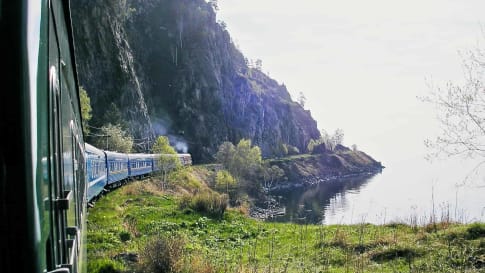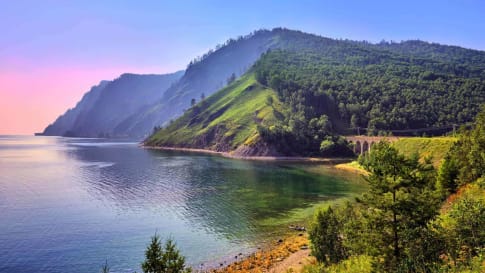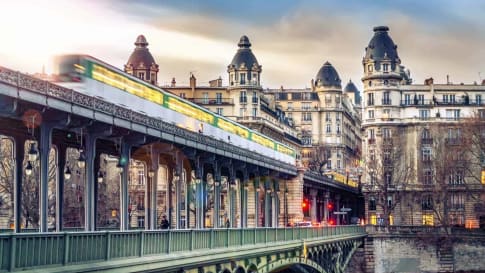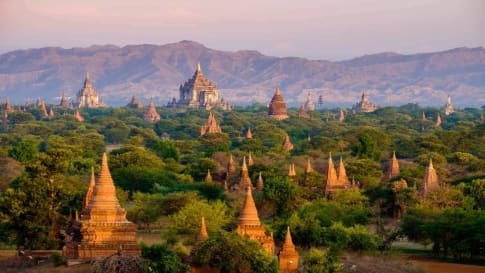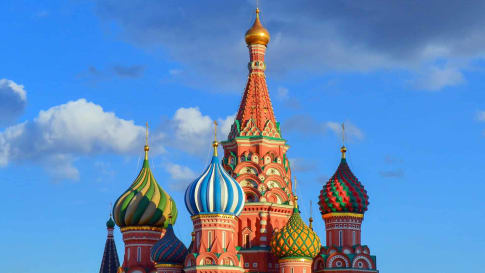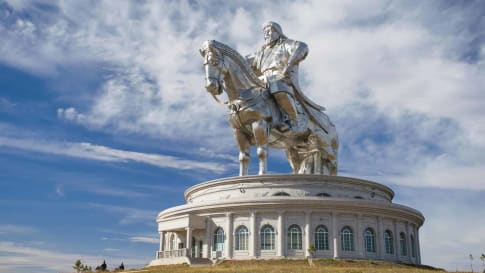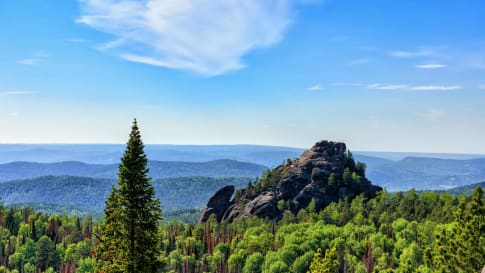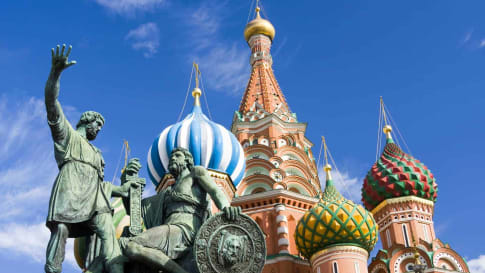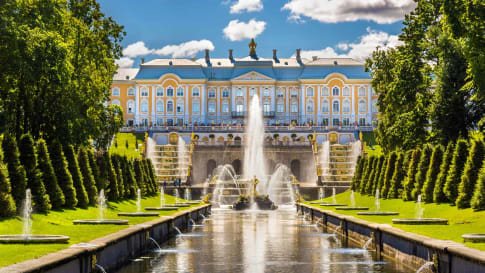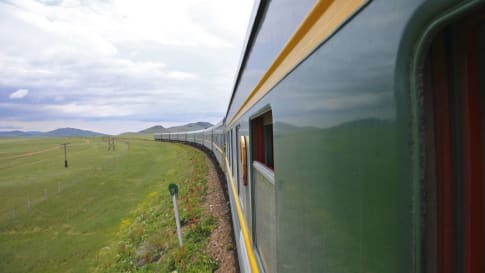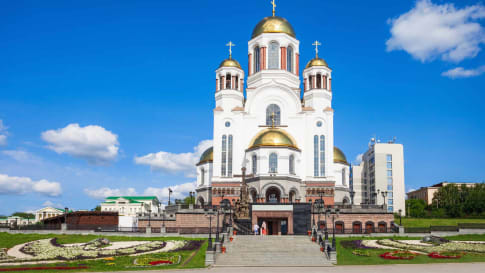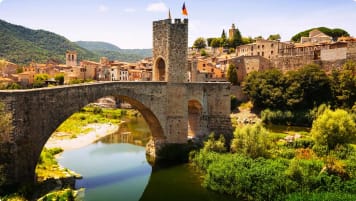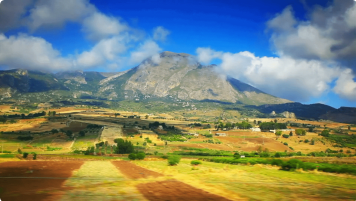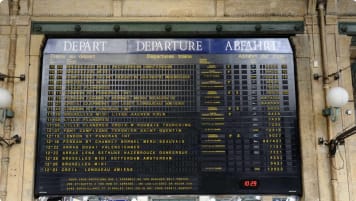Journey through Mongolia and Russia small group tour
This escorted small group tour traverses this expanse, from Ulaanbaatar to St Petersburg; from the Mongolian Steppes to Siberian taiga and tundra; over the Ural Mountains that divide Asia and Europe to the waterways of Golden Ring. Our program for couples and solo travellers uses two of the great rail journeys of the world; the Trans Mongolian Express and the Trans Siberian Express.
From A$17,850AUD
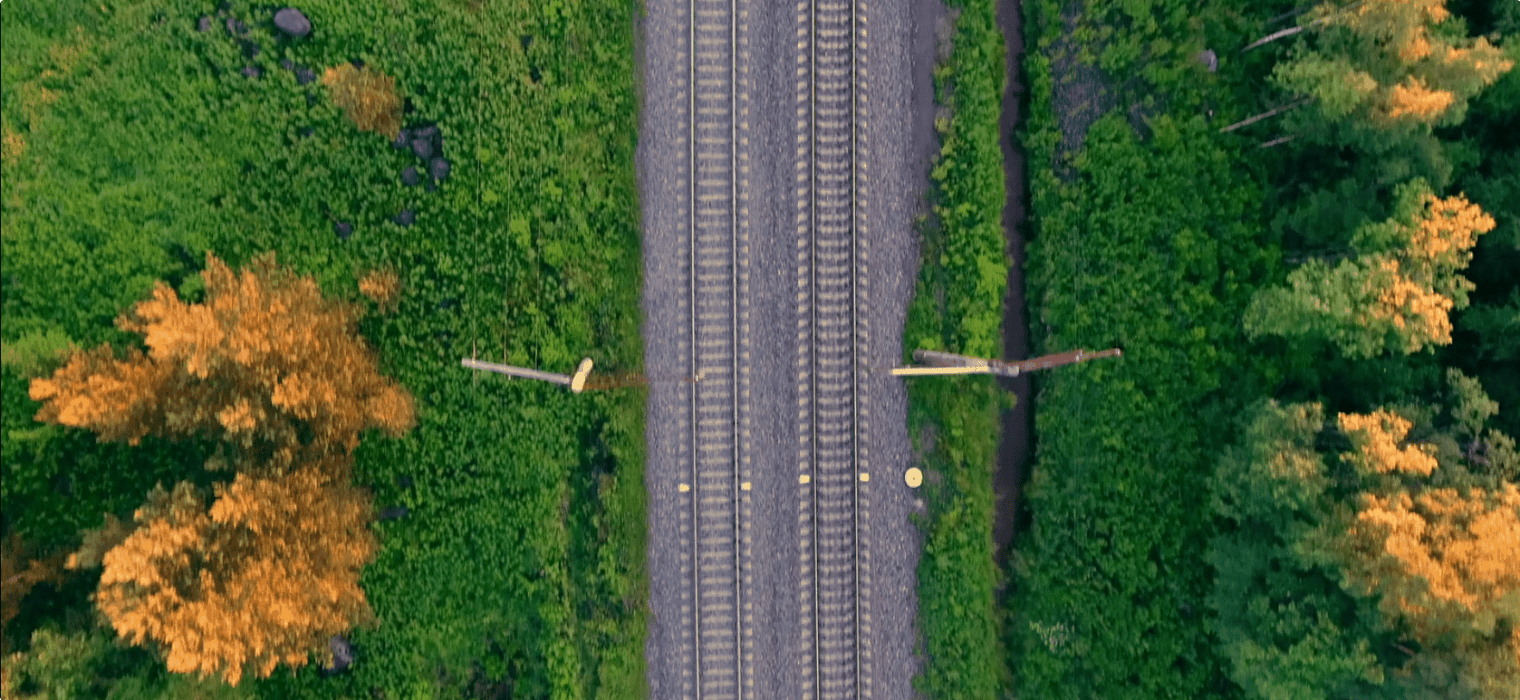
Highlights
- 1. Cruise the waterways of the Tsars between Moscow and St Petersburg to see the quintessential towns and villages of Russia’s Golden Ring.
- 2. Experience Mongolia’s Naadam festival in the capital Ulaanbaatar and its countryside in traditional gers.
- 3. Learn about Lake Baikal, the world’s deepest lake and experience the traditions and culture of Siberia in Irkutsk.
- 4. Visit Moscow and St Petersburg, including the Hermitage Museum.
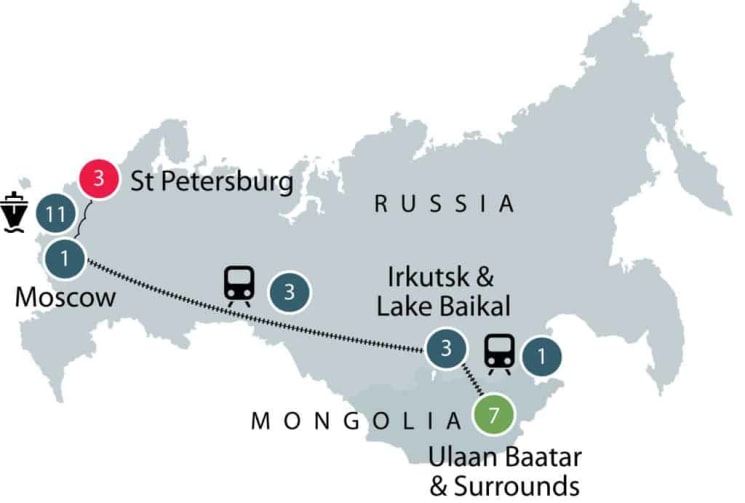
Departure Dates
| Departure Date | Price |
|---|---|
| 07 July 2025 Ends 05 August 2025 • days A$17,850 Twin A$20,250 Single Available | Selected |
| 13 July 2026 Ends 11 August 2026 • days A$17,850 Twin A$20,250 Single Available |
Journey through Mongolia and Russia: Small Group Tour by Train
SUSPENDED UNTIL FURTHER NOTICE.
For details on our programs and an up-to-date list of guaranteed departures, please https://www.odysseytraveller.com/tour-category/guaranteed/
Odyssey offers easy, convenient, and relaxed escorted small group tours across Western Europe and beyond. We explore Mongolia and Russia's natural beauty, and heritage by rail, its World Heritage Sites, and world famous cities, all with some truly spectacular scenery along the way. This and more is all waiting to be explored on one of Odyssey’s popular small group tours of Mongolia and Russia, designed for the senior traveller, and led by experienced, and enthusiastic like minded people.
This is a journey through Mongolia and Russia, a full y escorted program that takes the active senior or mature-aged couple or solo traveller with an interest in experiencing something different on two of the greatest train journeys in the world: the Trans-Siberian rail and Trans-Mongolian train.
On this 30-day Mongolia and Russia tour and train journey, you will be able to enjoy the experience, varied destinations, and overnight train rides secure in the knowledge that you always have a Program Leader with you. We will also have local guides who will join us on our walking tour and city tour, armed with expert knowledge of the destinations visited on a journey through Mongolia and then Russia. Your journey takes in stunning scenery, witnesses a nomadic culture of herders, horseback riders, a ger camp all in a modern world and provides great photographic journey to be recorded.
Highlights of our Mongolia, Russia small group tour
Join the tour in Ulaanbaatar, the capital of Mongolia, and spend the first seven days in Mongolia with a side trip to Russia’s Lake Baikal, a UNESCO World Heritage Site since 1996. During your time in Ulaanbaatar you will have the chance to experience Mongolia’s famous Naadam Festival. This centuries-old festival, once used for training warriors, involves competitions in horse riding, archery and Mongolian wrestling. We sleep in a traditional Mongolian ger in Hustai National Park, and visit the nearby Temple Ger Camp, some 60km to the east of Ulaanbaatar.
The ger camp is a unique opportunity to experience how modern technology and practices have influenced traditional Mongolian nomadic lifestyle, ger today are generally made out of felt and heated with wood burning stoves, these can house families across a number of generations. Larger communal tents can be found closer to the centre of the camp and are generally used for cooking and entertainment, while other amenities like showers and bathrooms are housed in their own block. A typical evening at camp will generally feature a meal of mutton, potatoes or dumplings, and if you're lucky you might even catch a performance of traditional Mongolian throat singing.
The tour then traverses the world’s largest landmass, the Euro-Asian Continental Plate, taking the traveller from Ulaanbaatar to St Petersburg via some of the world's most remote areas. The small group travels across Western Mongolia to the Mongolian steppe and then to the vast expanse of the Siberian taiga and tundra; over the Ural Mountains (the divide between Asia and Europe) to Moscow and the waterways of Russia's medieval Golden Ring. We also make a side trip to Lake Baikal, the world's deepest lake. Discover the Russian capital on a train ride on the Moscow Metro and experience Siberia’s traditions and culture while in Irkutsk.
Our tour uses two of the great railways of the world: the Trans Mongolian and the Trans Siberian trains. The Trans Siberian railway is regarded as as an iconic rite of passage journey with a long history. Though the Trans Mongolian is of similar era and history.
The tour concludes with an 11-night cruise on the waterways between Moscow and St Petersburg. While travelling along the mighty Volga river, view the splendid architecture of Russia’s Orthodox domed churches. We also visit the highlights of Moscow and St Petersburg, including St Basil's Cathedral and the Hermitage Museum.
Our guided tour also recognises that sampling the local cuisine is fundamental to an authentic travel experience. Each day, we eat breakfast, lunch, or dinner at a local restaurant (though, of course, some of our meals will be eaten when staying on the train).
This fully escorted tour offers the opportunity to travel with a small group of like-minded adventurers through Mongolia and Russia. You can learn more about Mongolia and Russia with our country profiles where all the other tour departures are listed as well. For more details about this tour, please click the 'Top 5'or 'Itinerary' buttons above! If you’re keen to experience this tour, please call or send an email. Or, to book, simply fill in the form on the right hand side of this page.
Odyssey Traveller Tours by Railway
Each year, Odyssey Traveller offers other small group tours by rail:
- French History by Rail tour which goes through Paris and the other cities of France; we have a 21-day tour and a shorter 11-day tour
- You can explore Paris, Bordeaux and Provence by Train in 22 days
- Learn about Japan's History by Rail in 10 days
- Travel from Helsinki to Irkutsk on the Trans-Siberian Rail or do the reverse tour (Irkutsk to Helsinki)
- Take the Trans-Siberian Rail from Vladivostok to Krasnoyarsk
If you want to learn more about the Trans-Siberian Railway and the train journey, click through to read the following articles prepared by Odyssey Traveller:
- Overview, which includes tips on booking your ticket and preparing for the long train ride.
- History of the Trans-Siberian Railway
- Trans-Siberian Landscapes and Wildlife
Refreshed December 2020.
Gallery
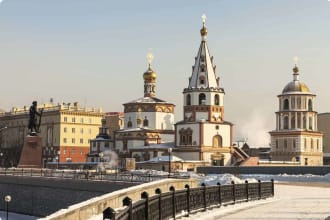
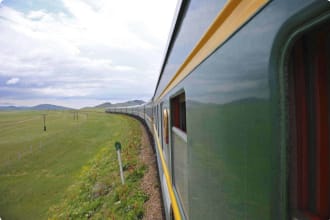
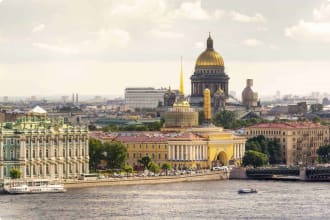
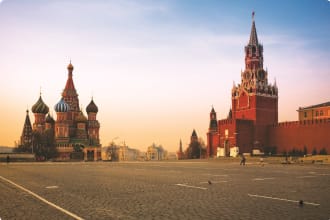
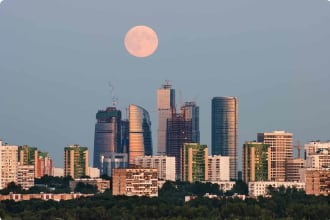
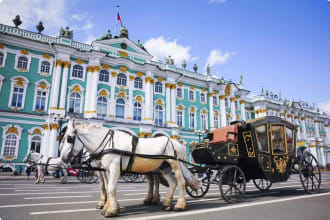
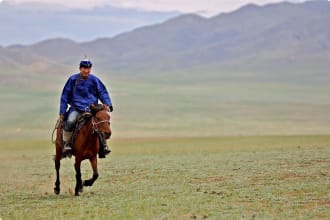
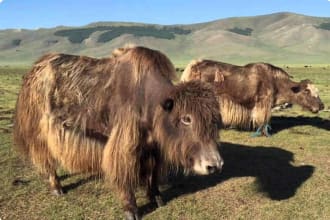
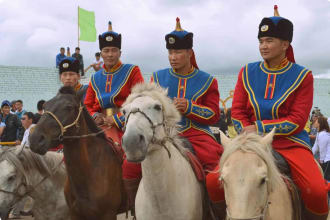
Itinerary
Day 1: Ulaanbaatar
Accommodation: 3 nights at Ulaan Baatar Hotel or similar
Arrive in Ulaanbaatar and make your own way to the accommodation. Welcome dinner tonight will be at a local restaurant.
Ulaan Baatar is the world’s coldest capital situated in a basin surrounded by four mountains on the southernmost border of the great Siberian taiga and steppe. When Mongolia achieved independence from China in 1911, the city had become an important trading centre on the route between China and Russia, populated by Chinese, Russians and Mongolians. In Ulaan Baatar we are introduced to Mongolia and will observe the Mongolian people during the colourful Naadam festival. We visit the nearby Temple Ger Camp in the beautiful valley of Ar Bulagtai, some 60km to the east of Ulaan Baatar where we stay in traditional gers. We will learn about the nomadic lifestyle of a 13th century Mongolian at the Chinggis Khaan Statue complex.
(D)
Day 2: Ulaanbaatar
Accommodation: Ulaan Baatar Hotel or similar
In the morning we’ll visit the traditional Buddhist Gandan Monastery. The Mongolians are active followers of the Buddhist faith; one of the three incarnations of the living “Buddah” or “Dalai Lama” resided in Ulaanbaatar. Our sightseeing continues with a visit the Central Museum of Mongolian Dinosaurs where we get a chance to see some of the best dinosaur fossil collections in the world. The museum is housed inside the former Lenin Museum. It was constructed in 1974, with plans to be expanded. After lunch we visit Winter Palace, residence of Mongolia’s eighth re-incarnation of the Living Buddha and last king.
(B,L,D)
Day 3: Ulaanbaatar - Naadam Festival
Accommodation: Hotel Ulaanbaatar or similar
After an introductory talk by a local guide, today is all about Mongolia’s Naadam Festival. Our full day’s worth of experiences includes the festival’s opening ceremonies, held in the main square. At the city’s central stadium we view dressage and traditional Mongolian wrestling and archery.
(B,L,D)
Day 4: Ulan Baatar - Hustai
Accommodation: Ger CampNote: no single accommodation is available at Ger camps
Today we enjoy a second day of games for the Nadaam Festival. Later in the afternoon, we drive to a Wild Horse Reserve Centre in the Hustai National Park, where we will spend the night. The park is home to the last remaining species of wild horse, the Takhi, commonly known as the Przewalski’s Horse. We’ll learn about the current conservation efforts and the status of herds found within the park.
Our accommodation tonight will be here, in the National Park in traditional ger style. Dinner will be served at our camp, under the stars.
(B,L,D)
Day 5: Hustai National Park - Gun Galuut Nature Reserve
Accommodation: 2 nights at Gun Galuut ger campNote: no single accommodation is available at Ger camps.
Today we further explore the park by visiting some ancient stone monuments of Ongot and local herder families for a nomadic lifestyle experience. We then drive east past Ulaanbaatar to Gun Galuut reserve, located approx 120 km from of the capital city. On the way we stop at the biggest equestrian statue to Chinggis Khaan and visit the 13th century village.
We enjoy dinner and sleep overnight at the Gun Galuut ger camp. This will be home for a total of two nights.
(B,L,D)
Day 6: Gun Galuut Nature Reserve
Accommodation: Gun Galuut ger camp
We have a full day to explore the park, where some 200 big horn argali sheep find refuge. The park is also home to many rare birds including the White Naped and Siberian Cranes. Today we will also visit a local herder family.
(B,L,D)
Day 7: Ulaanbaatar
Accommodation: 1 night at Hotel Ulaanbaatar, or similar
After breakfast we transfer back to Ulaanbaatar. After lunch at a local restaurant, we’ll visit the Fine Arts Museum. In the evening we are treated to a concert of Mongolian Music and Dance, which includes a performance of the haunting Mongolian throat singing followed by dinner at a nearby restaurant.
(B,L,D)
Day 8: Trans Mongolian train to Irkutsk
Accommodation: 1 night on board Trans Mongolian Express train in 4 berth compartments with exclusive use for 2 or 3 people (depending on group's final numbers)Single compartments are not available on train journeys and participants will be required to share 4 berth cabins with other participants of either sex.
The morning is free to explore the city on your own and then we get together for lunch. As there’s limited catering on the train, we plan a quick stop to shop for supplies before the next phase of our journey: this afternoon we board the Trans Mongolian train bound for Irkutsk, Russia. The train crosses the extensive Mongolian countryside. Pending local timetables, the proposed train is scheduled to depart at 3:22 pm.
(B,L)
Day 9: Irkutsk
Accommodation: 3 nights at Ibis Irkutsk or similar
Irkutsk is now the regional and administrative capital of Siberia. It came to prominence in 1651 as a Cossack garrison and come the 18th century, was an important trade centre for furs and ivory. Later it became the administrative, industrial and scientific centre during the Soviet era. With the coming of the railway in 1898, Irkutsk was linked with the rest of Russia and became an important strategic outpost. It is an ideal base to explore the world’s deepest Lake, Baikal.
We arrive in Irkutsk at 9:30 am and commence with a city orientation tour and a visit to the Decembrist Museum. Lunch will be at a local restaurant, and dinner at our hotel.
(L,D)
Day 10: Irkutsk - Lake Baikal
Accommodation: Ibis Irkutsk or similar
After breakfast we travel southeast to visit Talsty Museum of Architecture and Ethnography. We then continue to the town of Listvyanka, on the shores of of Lake Baikal, for lunch. We also visit Baikal Lake Museum and panoramic platform on top of the “Stone Tcherskogo” mountain. We head to the pier, to enjoy a boat ride on Lake Baikal, the world’s deepest lake. We return to Irkutsk and dinner this evening will be at a local restaurant.
(B,L,D)
Day 11: Irkutsk
Accommodation: Ibis Irkutsk or similar
Free morning in Irkutsk. Afternoon activity TBC. Dinner at a local restaurant.
(B,D)
Day 12 - 13 - 14 - 15: Irkutsk - Moscow
Accommodation: 3 nights on board Train to Moscow in 4 berth compartments with exclusive use for 2 or 3 people (depending on group's final numbers)Single compartments are not available on train journeys and participants will be required to share 4 berth cabins with other participant of either sex.
In the morning we’ll visit Ust Orda settlement and the Ethnography Museum “Gold Orda”, we’ll learn about the traditions and culture of the Buryats. In the afternoon we return to Irkutsk and enjoy an early dinner at a local café before going to the Rail station.
This evening we board the Trans-Siberian train for our epic rail journey through the Siberian forests and across the rural mountains to Moscow.
Meals and snacks on board of the train can be purchased at the dining/restaurant car or at some of the stations where the train stops along the journey.
Day 16-17-18-19-20-21-22-23-24-25-26: Moscow - St Petersburg: Russian Golden Ring Cruise
Accommodation: 11 nights on board of MS Chernychevsky or similar (single or twin share cabins available)
We arrive early in the morning (around 4:45 am) and transfer to a hotel for some rest and to freshen up before our half day tour of Moscow. In the afternoon we transfer to the port to board our cruise.
Moscow regarded as Europe’s most “eastern” capital boasting Saint Basil’s Cathedral, Red Square and the mysterious Kremlin. It contains some of Russia’s most outstanding architectural monuments from the fifteenth to seventeenth centuries, as well as great constructions from the Stalinist period including one of Europe’s most outstanding metro systems. The first 3 nights the boat will be moored in port in Moscow and then sail to Uglish, Yaroslavi, Goritzy, Khizi Island, Mandrogi-Ladoga and finish with 3 nights moored in St Petersburg.
We will visit the heritage mediaeval cities of the Golden Ring including Uglich, Kizhi, Yaroslavl and Goritsy. The history, heritage and culture of Russia are epitomised in the glorious, quintessential Russian cities and countryside visited during our Golden Ring cruise.
In St Petersburg, one of the grandest cities in the world. We experience Palace Square, the Nevski Prospect, St Isaak’s Cathedral, the imposing Peter and Paul Fortress and the Hermitage Museum.
The cruise is full-board – Breakfast, Lunch and Dinner are served on board.
Day 27-28-29: St Petersburg
Accommodation: 3 nights at Hotel Moscow or similar
Today we have a tour to Peterhof lower park after which your time is free. There is an opportunity to take an optional excursion on the canals of St Petersburg (part of the cruise shore offering).
We then transfer to our hotel in St Petersburg for our final days of free time in St Petersburg, which can be planned at your own choice. Some of you might want to re-visit the Hermitage Museum at your own pace, or perhaps spend some time exploring the beautiful gardens around St Petersburg. There are many other landmarks, museums and tours that Odyssey or the program leader will be able to plan for you, for these final days in St Petersburg either with the group, or by yourself.
(B) daily and (D) on evening of Day 29
Day 30: St Petersburg
Tour concludes in St Petersburg hotel after breakfast.
(B)
Tour Notes
- Singles are NOT available during our nights in Mongolian yurts/gers or onboard any of the rail journeys
- Singles are available in hotels in Ulannbaatar, Irkutsk/Lake Baikal, Moscow and on the Russian cruise only
- Meals are not provided on the Trans-Mongolian Train but chance is given in Ulaanbaatar to purchase suitable provisions
- Meals are not included on the Trans-Siberian Train but can be purchased on board the train
- Travellers should note that facilities on these public trains may be of a basic standard
- Group size is limited to a maximum of 15 participants.
- The itinerary for 2019 is subject to be reviewed and amended once the current tour is completed and dates for the cruise as well as trains have been released.
Includes / Excludes
What’s included in our Tour
- 10 nights hotel accommodation.
- 3 nights in traditional Mongolian gers (felt tents) – twin share.
- 1 nights aboard the Trans Mongolian from Ulaanbaatar to Irkutsk in 4 berth compartments, with exclusive use for 2 people or 3 people (depending on final group size).
- 3 nights travel aboard the Trans Siberian in 4 berth compartments, with exclusive use for 2 or 3 people (depending on final group size).
- 11 nights accommodation onboard river cruise vessel in en-suited twin share cabins (singles available).
- 25 breakfasts, 20 lunches and 23 dinners.
- Transport and field trips as indicated.
- Applicable entry fees and services of local guides.
- Gratuities and necessary tips.
- Invitation letter for Russian Visa.
- Services of an Odyssey program leader.
- Detailed Tour Information Booklet.
What’s not included in our Tour
- International airfares and departure taxes
- Comprehensive Travel Insurance.
- Cost for Mongolian & Russian Visas. Odyssey will assist in obtaining the invitation letters for both visas.
- Meals not specified in the itinerary.
- Items of a personal nature, such as telephone calls and laundry.
Participants must be in excellent health, extremely mobile and live an active lifestyle. Program activities may include up to 6 hours of continuous strenuous, moderate-to-fast paced activities per day on varied terrain.
Book now
Make it a private tour
Easing your journey
Crossing international borders with restrictions
The list of requirements to travel internationally has changed and will continue to change for several years. Odyssey is here to assist you in managing your way through these requirements:
For more information see our Crossing international borders with restrictions page.
Book With Confidence
If less than 30 days before your tour starts you are unable to travel as a result of Government travel restrictions, Odyssey Traveller will assist you with a date change, provide you with a credit or process a refund for your booking less any non-recoverable costs.
See Terms and conditions for details.
Peace of Mind Travel
The safety of our travellers, tour leader, local guide and support staff has always been our top priority and with the new guidelines for public health and safety for keeping safe for destinations around the world, we’ve developed our plan to give you peace of mind when travelling with us.
See Peace of Mind Travel for details.
Reviews
The Mongolia / Russia trip was an excellent adventure, stretching from the Mongolia steppe, through Russia via train and boat. Culturally it is rich, beginning with the nomads of Mongolia - their lifestyle and their colourful music and dance, and moving through Irkutsk in Siberia (so many stories) to Moscow and St Petersburg. So from an agrarian culture to a highly urbanised one. THE development is fascinating. Gillian L. July '18
We did this tour in 2011. Wonderful, extraordinary experience. Loved every minute.
Rex and Maree
Reading List Download PDF
Genghis Khan and the Making of the Modern World
Jack Weatherford
The Mongol army led by Genghis Khan subjugated more lands and people in twenty-five years than the Romans did in four hundred. In nearly every country the Mongols conquered, they brought an unprecedented rise in cultural communication, expanded trade, and a blossoming of civilization. Vastly more progressive than his European or Asian counterparts, Genghis Khan abolished torture, granted universal religious freedom, and smashed feudal systems of aristocratic privilege. From the story of his rise through the tribal culture to the explosion of civilization that the Mongol Empire unleashed, this brilliant work of revisionist history is nothing less than the epic story of how the modern world was made.
Eagle Dreams: Searching for Legends in Wild Mongolia
Stephen Bodio
Mongolia is a vast country located between Siberia and China, and little-known to outsiders. As Mongolia had long been under Soviet rule, it was inaccessible to Westerners. That was until 1990, when Stephen J. Bodio began planning his trip.
As a boy, Bodio was always fascinated with nature. When he saw an image in National Geographic of a Kazakh nomad, dressed in a long coat and wearing a fur hat, holding a huge eagle on his fist, his life was changed from then on. When Mongolia became independent in 1990, Bodio knew that his dream to see the eagle hunters from the picture in National Geographic
Bones of the Master: A Journey to Secret Mongolia
George Crane
In 1959 a young monk named Tsung Tsai (Ancestor Wisdom) escapes the Red Army troops that destroy his monastery, and flees alone three thousand miles across a China swept by chaos and famine. Knowing his fellow monks are dead, himself starving and hunted, he is sustained by his mission: to carry on the teachings of his Buddhist meditation master, who was too old to leave with his disciple.
Nearly forty years later Tsung Tsai — now an old master himself — persuades his American neighbor, maverick poet George Crane, to travel with him back to his birthplace at the edge of the Gobi Desert.
They are unlikely companions. Crane seeks freedom, adventure, sensation. Tsung Tsai is determined to find his master's grave and plant the seeds of a spiritual renewal in China. As their search culminates in a torturous climb to a remote mountain cave, it becomes clear that this seemingly quixotic quest may cost both men's lives.
Hearing Birds Fly: A Nomadic Year in Mongolia
Louise Waugh
Louisa Waugh's passionately written account of her time in a remote Mongolian village. Frustrated by the increasingly bland character of the capital city of Ulan Bator, she yearned for the real Mongolia and got the chance when she was summoned by the village head to go to Tsengel far away in the west, near the Kazakh border. Her story transports the reader to the glacial cold and the wonders of the Seven Kings as they steadily emerge from the horizon. Through her we sense their trials as well as their joys, rivalries and even hostilities, many of which the author shared or knew about. Waugh's time in the village was marked by coming to terms with the harshness of climate and also by how she faced up to new feelings towards the treatment of animals, death, solitude and real loneliness, and the constant struggle to censor her reactions as an outsider. Above all, she aims to involve readers with the locals' lives in such a way that we come to know them and care for their fates.
Mongolia: Travels in the Untamed Land
Jasper Becker
For seventy years Mongolia was all but closed to the west - a forbidden country, shrouded in darkness. Jasper Becker had long dreamed of exploring the sweeping land that lay just beyond China’s Great Wall and when communism disintegrated, he finally did. Setting out from Kublai Khan’s capital, Beijing, Becker was one of the first westerners to cross the border. Tracing the course of the Yellow River, he ventured deep into the heart of Mongolia, witnessing the birth of one of the world’s youngest democracies as well as the deep and tragic impact of the rules of Mao and Stalin on the Mongolian people.
Unravelling the history of Mongolia which had for so long been obscured and distorted, Becker traces the rise and fall of the Mongols who emerged from the steppes to forge one of the greatest and most feared empires of all time under Genghis Khan and his successors; he examines the shattering, divisive years of communist rule and explores present-day Mongolia, where poverty and the encroachments of westernisation cause as much damage. He goes in search of the fragile remnants of Buddhism and shamanism; visits Tuva - the lost world of Central Asia - and searches for the tomb of Genghis Khan which has been guarded and hidden by the same family for generations. Listening to the pulse of Central Asian history, Becker adorns his narrative with the stories of past travellers, tyrannical rulers, nomads, monks, missionaries, Russian officials, Mongolian activists and the memories of everyday people to paint a moving and enlightening portrait of Mongolia, a country that against all the odds has survived since the days of Genghis Khan and continues to beat to its own rhythm.
A History of Modern Russia: From Nicholas II to Vladimir Putin
Robert Service
Russia had an extraordinary twentieth century, undergoing upheaval and transformation. Updating his acclaimed History of Twentieth-Century Russia through 2002, Robert Service provides a panoramic perspective on a country whose Soviet past encompassed revolution, civil war, mass terror, and two world wars. He shows how seven decades of communist rule, which penetrated every aspect of Soviet life, continue to influence Russia today. This new edition also discusses continuing economic and social difficulties at the beginning of the twenty-first century, the military campaign in Chechnya, and Russia's reduced role on the world stage.
The New Russia
Mikhail Gorbachev
After years of rapprochement, the relationship between Russia and the West is more strained now than it has ever been in the past 25 years. Putin's motives, his reasons for seeking confrontation with the West, remain for many a mystery. Not for Mikhail Gorbachev. In this new work, Russia's elder statesman draws on his wealth of knowledge and experience to reveal the development of Putin's regime and the intentions behind it. He argues that in order to further his own personal power, Putin has corrupted the achievements of perestroika and created a system which offers no future for Russia. Faced with this, Gorbachev advocates a radical reform of politics and new fostering of pluralism and social democracy.
Gorbachev's insightful analysis moves beyond internal politics to address wider problems in the region, including the Ukraine conflict, as well as the global challenges of poverty and climate change. Above all else, he insists that solutions are to be found by returning to the atmosphere of dialogue and cooperation which was so instrumental in ending the Cold War.
This book represents the summation of Gorbachev's thinking on the course that Russia has taken since 1991 and stands as a testament to one of the greatest and most influential statesmen of the 20th century.
Sunlight at Midnight: St. Petersburg and the Rise of Modern Russia
Bruce Lincoln
For Russians, St.Petersburg has embodied power, heroism and fortitude. It has encompassed all the things that the Russians are and that they hope to become. Opulence and artistic brilliance blend with images of suffering on a monumental scale to make up the historic persona the late W. Bruce Lincoln's lavish biography of this mysterious, complex city. Climate and comfort were not what Tsar Peter the Great had in mind when he decided to build a new capital in the muddy marshes of the Neva River delta. Located 500 miles below the Arctic Circle, this area, with its foul weather, bad water and sodden soil, was so unattractive that only a handful of Finnish fisherman had ever settled there. Yet to the Tsar the place he named Sankt Pieter Burkh had the makings of a paradise. His vision was soon borne out: though St. Petersburg was closer to London, Paris and Vienna than to Russian's far-off eastern lands, it quickly became the political, cultural and economic center of an empire that stretched across more than a dozen time zones and over three continents.In this book, revolutionaries and laborers brush shoulders with tsars and builders, soldiers and statesmen share pride of place with poets. For only the entire historical experience of this magnificent and mysterious city can reveal the wealth of human and natural forces that shaped the modern history of the city and the nation it represents.
The Invention of Russia: From Gorbachev's Freedom to Putin's War
Arkady Ostrovsky
The end of communism and breakup of the Soviet Union was a time of euphoria around the world, but Russia today is violently anti-American and dangerously nationalistic. So how did we go from the promise of those heady days to the autocratic police state of Putin’s new Russia?
The Invention of Russia is a breathtakingly ambitious book that reaches back to the darkest days of the cold war to tell the story of the fight for the soul of a nation. With the deep insight only possible of a native son, Ostrovsky introduces us to the propagandists, oligarchs, and fixers who have set Russia’s course since the collapse of the Soviet Union, inventing a new and more ominous identity for a country where ideas are all too often wielded like a cudgel.
The Soviet Union yoked together dreamers and strongmen—those who believed in an egalitarian ideal and those who pushed for an even more powerful state. The new Russia is a cynical operation, where perpetual fear and war are fueled by a web of lies, as television presenters peddle the invasion of Ukraine and goad Putin to go nuclear. Twenty-five years after the Soviet flag came down over the Kremlin, Russia and America are again heading toward a confrontation—but this course was far from inevitable. With this riveting account of how we got here—of the many mistakes and false promises—Ostrovsky emerges as Russia’s most gifted chronicler.
The Cambridge History of Russia: Volume 2, Imperial Russia, 1689-1917
Lieven, Dominic
The second volume of The Cambridge History of Russia covers the imperial period (1689-1917). It encompasses political, economic, social, cultural, diplomatic, and military history. All the major Russian social groups have separate chapters and the volume also includes surveys on the non-Russian peoples and the government's policies towards them. It addresses themes such as women, law, the Orthodox Church, the police and the revolutionary movement. The volume's seven chapters on diplomatic and military history, and on Russia's evolution as a great power, make it the most detailed study of these issues available in English. The contributors come from the USA, UK, Russia and Germany: most are internationally recognised as leading scholars in their fields, and some emerging younger academics engaged in cutting-edge research have also been included. No other single volume in any language offers so comprehensive, expert and up-to-date an analysis of Russian history in this period.
St Petersburg: Three Centuries of Murderous Desire
Jonathan Miles
This extraordinary book brings to life an astonishing place. Beautiful prose renders brutality vivid' The Times - BOOK OF THE WEEK
From Peter the Great to Putin, this is the unforgettable story of St Petersburg – one of the most magical, menacing and influential cities in the world.
St Petersburg has always felt like an impossible metropolis, risen from the freezing mists and flooded marshland of the River Neva on the western edge of Russia. It was a new capital in an old country. Established in 1703 by the sheer will of its charismatic founder, the homicidal megalomaniac Peter-the-Great, its dazzling yet unhinged reputation was quickly fashioned by the sadistic dominion of its early rulers.
This city, in its successive incarnations – St Petersburg; Petrograd; Leningrad and, once again, St Petersburg – has always been a place of perpetual contradiction. It was a window on to Europe and the Enlightenment, but so much of the glory of Russia was created here: its literature, music, dance and, for a time, its political vision. It gave birth to the artistic genius of Pushkin and Dostoyevsky, Tchaikovsky and Shostakovich, Pavlova and Nureyev. Yet, for all its glittering palaces, fairytale balls and enchanting gardens, the blood of thousands has been spilt on its snow-filled streets. It has been a hotbed of war and revolution, a place of siege and starvation, and the crucible for Lenin and Stalin’s power-hungry brutality.
In St Petersburg, Jonathan Miles recreates the drama of three hundred years in this absurd and brilliant city, bringing us up to the present day, when – once more – its fate hangs in the balance. This is an epic tale of murder, massacre and madness played out against squalor and splendour. It is an unforgettable portrait of a city and its people.
The Last of the Tsars: Nicholas II and the Russian Revolution
Robert Service
In March 1917, Nicholas II, the last Tsar of All the Russias, abdicated and the dynasty that had ruled an empire for three hundred years was forced from power by revolution. Now, on the hundredth anniversary of that revolution, Robert Service, the eminent historian of Russia, examines Nicholas's reign in the year before his abdication and the months between that momentous date and his death, with his family, in Ekaterinburg in July 1918.
The story has been told many times, but Service's profound understanding of the period and his forensic examination of hitherto untapped sources, including the Tsar's diaries and recorded conversations, shed remarkable new light on his reign, also revealing the kind of ruler Nicholas believed himself to have been, contrary to the disastrous reality.
The Last of the Tsars is a masterful study of a man who was almost entirely out of his depth, perhaps even willfully so. It is also a compelling account of the social, economic and political foment in Russia in the aftermath of Alexander Kerensky's February Revolution, the Bolshevik seizure of power in October 1917 and the beginnings of Lenin's Soviet republic.
The Russian Revolution: A New History
Sean McMeekin
At the turn of the century, the Russian economy was growing by about 10% annually and its population had reached 150 million. By 1920 the country was in desperate financial straits and more than 20 million Russians had died. And by 1950, a third of the globe had embraced communism.
The triumph of Communism sets a profound puzzle. How did the Bolsheviks win power and then cling to it amid the chaos they had created? Traditional histories remain a captive to Marxist ideas about class struggle. Analysing never before used files from the Tsarist military archives, McMeekin argues that war is the answer. The revolutionaries were aided at nearly every step by Germany, Sweden, and Switzerland who sought to benefit - politically and economically - from the changes overtaking the country. To make sense of Russia's careening path the essential question is not Lenin's "who, whom?", but who benefits?
